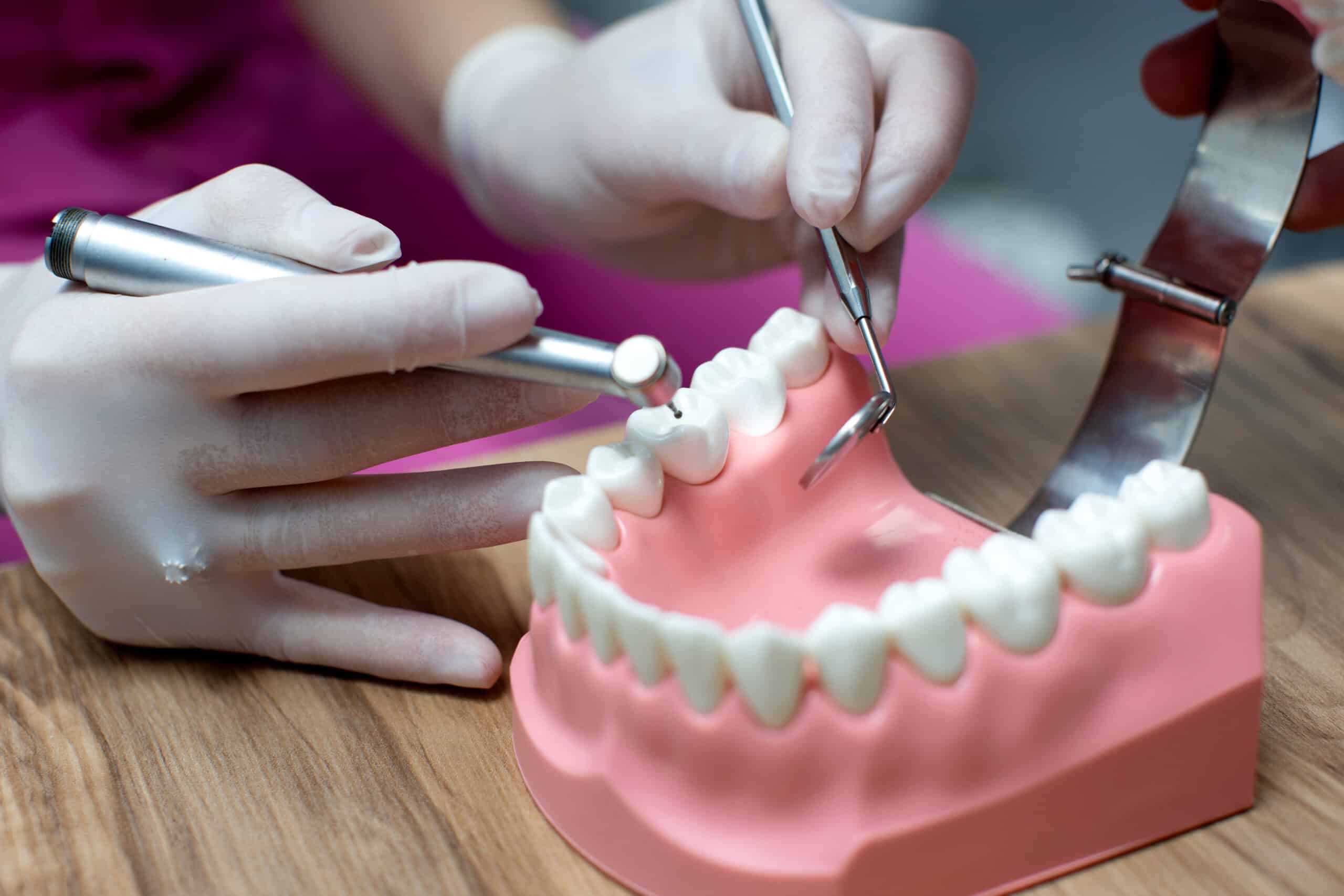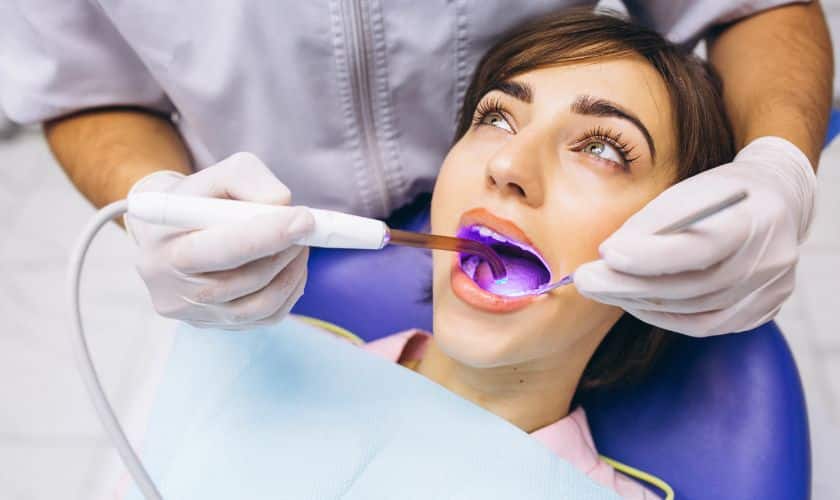
Welcome to our blog post on achieving optimal oral health through restorative dental care! Your smile is one of the first things people notice about you, and it can be a great source of confidence or insecurity. If you’re struggling with dental issues such as cavities, decay, missing teeth, or damaged enamel, don’t worry – we’ve got your back! In this article, we’ll explore how restorative dentistry can help you restore your beautiful smile and improve your overall oral health. So sit tight and let’s dive in!
Restorative Dental Care
There are many different types of dental care that fall under the umbrella of “restorative dental care” This can include anything from simple teeth cleanings to more complex procedures like dental implants or veneers. The goal of restorative dental care is to help patients achieve and maintain optimal oral health.
One of the most important aspects of restorative dental care is preventing tooth decay and gum disease. This can be done through regular teeth cleanings, using fluoride toothpaste, and avoiding sugary snacks and drinks. If you already have tooth decay or gum disease, your dentist may recommend more aggressive treatment, such as a deep cleaning or periodontal surgery.
Another important aspect of restorative dental care is replacing missing teeth. This can be done with dentures, bridges, or implants. Implants are the most permanent solution, but they are also the most expensive. Dentures and bridges are less expensive options that can still provide good function and aesthetics.
If you are considering any type of restorative dental care, it’s important to consult with a qualified dentist to find out what option is best for you.
Causes of Tooth Decay and Damage
There are many different factors that can contribute to tooth decay and damage. Poor oral hygiene is one of the most common causes. If you don’t brush and floss your teeth regularly, plaque and tartar can build up on your teeth, which can lead to cavities.
Other common causes of tooth decay and damage include:
• Eating sugary or acidic foods and drinks
• Grinding your teeth
• Chewing on hard objects
• Tobacco use
• Dry mouth
Types of Restorative Dental Treatments
There are many different types of restorative dental treatments available to patients who are seeking to improve their oral health. Some of the most common procedures include fillings, crowns, bridges, and implants.
Fillings: Fillings are used to repair damage to the tooth enamel caused by cavities or other injuries. The most common type of filling is made from a composite material that is matched to the color of your natural teeth. Other types of fillings include amalgam (silver), gold, and porcelain.
Crowns: A dental crown is a cap that covers the entire surface of a damaged tooth in order to protect it and restore its appearance. Crowns can be made from a variety of materials, including porcelain, ceramic, and metal.
Bridges: A dental bridge is used to replace one or more missing teeth. The bridge consists of two crowns that are placed on the teeth adjacent to the gap and a false tooth (or “pontic”) in between. Bridges can be made from a variety of materials, including porcelain, ceramic, and metal.
Implants: Dental implants are artificial roots that are surgically implanted into the jawbone in order to support a replacement tooth (or “crown”). Implants are made from titanium and are considered to be the strongest and most durable type of restorative dental treatment available.
Benefits of Optimal Oral Health
There are many benefits to optimal oral health, including:
-Reduced risk of cavities and tooth decay
-Reduced risk of gum disease
-Improved overall health and well-being
-Improved self-confidence and self-esteem
Cavities and tooth decay are often the results of poor oral hygiene. By maintaining good oral hygiene habits, you can reduce your risk of cavities and tooth decay. Additionally, gum disease is a common problem that can lead to serious health complications if left untreated. Good oral hygiene can help reduce your risk of developing gum disease.
Overall, optimal oral health can improve your quality of life. When you feel good about your smile, you’re more likely to feel confident in social situations. This can lead to improved work performance, better personal relationships, and overall happier life. If you’re looking for ways to improve your oral health, restorative dental care may be the answer.
How to Maintain Optimal Oral Health
The first step in maintaining optimal oral health is to visit your dentist regularly for checkups and cleanings. Your dentist can remove any buildup on your teeth and help you maintain good oral hygiene habits.
In between dental visits, you can do your part to keep your mouth healthy by brushing twice a day with fluoride toothpaste, flossing daily, and eating a balanced diet. Avoid sugary snacks and drinks, which can contribute to tooth decay. If you use tobacco products, quitting is the best thing you can do for your oral health.
If you have any existing dental problems, such as cavities or gum disease, it’s important to seek treatment as soon as possible. These conditions can lead to more serious problems if they’re not treated promptly.
By following these simple tips, you can help keep your mouth healthy and avoid costly dental problems down the road.
Prevention Tips for Avoiding Tooth Decay and Damage
There are a few key things you can do to help prevent tooth decay and damage. First, practice good oral hygiene by brushing your teeth at least twice a day and flossing daily. This will remove plaque and bacteria from your teeth and gums, which can lead to decay and damage.
Second, eat a healthy diet that includes plenty of fruits, vegetables, and whole grains. These foods contain nutrients that are good for your teeth and gums. Avoid sugary snacks and drinks, which can cause decay.
Third, visit your dentist regularly for checkups and cleanings. This will help to catch any problems early and keep your mouth healthy.
By following these prevention tips, you can help avoid tooth decay and damage. If you do experience any problems with your teeth or gums, be sure to see your dentist right away for treatment.
Alternatives to Restorative Dental Care
There are a number of alternatives to restorative dental care available, depending on the needs of the patient. These can include things like:
– Prevention and early intervention: This includes regular brushing and flossing, as well as visiting the dentist for regular checkups and cleanings. This can help to avoid many common dental problems before they start, or at least catch them in their earliest stages.
– Dental sealants: Sealants are a thin coating that is applied to the chewing surfaces of the back teeth. They can help to prevent cavities by keeping food and bacteria from getting into the tiny crevices in these teeth.
– Fluoride treatments: Fluoride is a mineral that helps to strengthen tooth enamel and make it more resistant to decay. It can be applied topically in the form of gels, varnishes, or mouth rinses, or it can be taken internally through fluoridated water or supplements.
– Diet and nutrition: Eating a balanced diet and getting enough fluoride, calcium, and other nutrients is essential for good oral health. Avoiding sugary snacks and drinks can also help to reduce the risk of cavities.
Conclusion
Restorative dentistry is an important part of achieving optimal oral health. From gum disease treatments to the placement of dental implants, restorative care provides a variety of options that can help you maintain and improve your dental health. With regular visits to your dentist and proper maintenance at home, you can ensure that your smile will last a lifetime. Consider talking with your dentist about what restorative dental care options are right for you today!
Restorative dental care is a branch of dentistry that focuses on repairing and restoring teeth that have been damaged or lost. It can involve a variety of different treatments, such as fillings, crowns, bridges, implants, and dentures.
Restorative dental care is important because it can help to improve your oral health and prevent further damage to your teeth. It can also restore your smile and give you back the confidence to eat, speak, and socialize without worry.
There are many different types of restorative dental treatments available, depending on your needs. Some common treatments include fillings, crowns, bridges, implants, and dentures. Your dentist will be able to advise you on the best treatment for your individual case.











